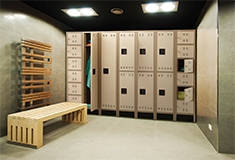

Also, the VR100-200 surface unit with a VHTx (Transponding Hydrophone) can be used to request and display noise measurements without having to retrieve your receiver. If noise logging reveals that a deployment location may be unsuitable, then a comparison of noise levels at other deployment locations can be performed, and the least noisy location can be chosen. VEMCO’s VR2AR receiver has the ability to record average noise levels as well as min/max noise levels for a specified time period. McGraw-Hill, 1983.).Ĭan my VR2AR measure noise in a specific location? Principles of Underwater Sound, 3rd Edition. New York. For the enthusiast who wants to learn more about sound propagation, try the widely accepted reference on underwater sound by Urick (1983). One should always perform range testing to determine appropriate receiver spacing.

Please try our Range Calculator but only use the results as a guide. There are some exceptions where high power and a reflective and low noise environment may cause detection breakdowns. For example, in good conditions a V7-VR2AR range test could yield a range of 300-400 m and a V16-VR2AR test could yield ranges of 800-1200 m. In most cases greater transmission power output (dB) results in greater range. In all cases, extreme weather events and periods of high wind (waves) may significantly reduce range. Conversely, areas with turbid water, complex rocky bottom topography and high current exhibit low ranges. Typically areas that have clear water, sand or silt flat bottoms and low current exhibit the greatest ranges. Range depends on transmission power, signal absorption, line of sight, reflection/refraction, multipath and environmental noise (man-made & natural), and the receiving quality of the receiver/hydrophone.
#Ore deck acoustic release 8242 deckset update
Have you looked whether you need to update your VR2s? click hereĭetection range depends on so many factors that it is difficult to estimate without knowledge of the environment and prior experience with telemetry. To see an overview of how the VR2AR works, check out our VR2AR Demonstration Video. Customers will require a new transponding hydrophone to attach to the VR100 to communicate with the VR2AR. The VR2AR communicates to the surface using the VR100 active tracking receiver with a transponding hydrophone and is compatible with all VR100 models sold since January 2013. Surface to Receiver Communications Using the VR100 Receiver The collar is a simple and easy deployment solution. The VR2AR Flotation Collar is designed for use with the VR2AR Acoustic Release and Receiver and is easy to assemble and attach using two ¾-inch wrenches (not included).

#Ore deck acoustic release 8242 deckset plus
The VR2AR maintains all of the existing features of the VR2Tx plus much more.

The VR2AR Acoustic Release and Receiver combines a VR2Tx Receiver and an acoustic release along with a V16-like transmitter which allows researchers to remotely retrieve deployed receivers and communicate to the surface without retrieving the unit.


 0 kommentar(er)
0 kommentar(er)
